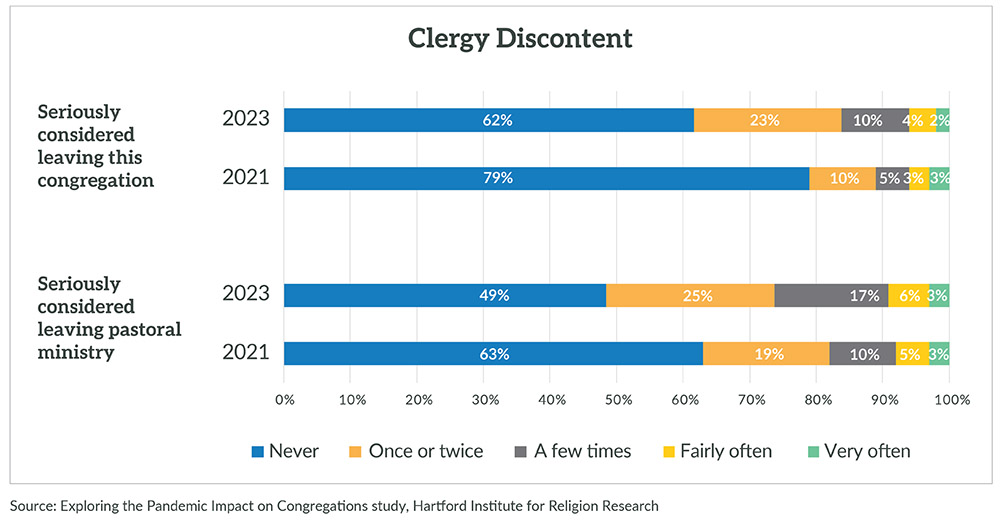“Therapists only have a few dozen people to care for,” she recalled her husband saying. “At church, you have hundreds of people that you help with their hurts and griefs. That is something people don’t realize.”
Add to that the logistics of the pastorate — preparing sermons, raising funds, working with committees and dealing with all the small details needed to keep a congregation running — and it can be a lot.
RELATED: When You Feel Like Quitting Youth Ministry, Do This Instead
Chambers Johnson said she felt more prepared for the burdens of the pastorate because her father was a pastor — so she knew what she was getting into. She also said caring for people in her church is a privilege — that some of the most holy moments of her life came when she was present with people in grief or crisis.
“That’s the part of the job I would not trade for everything,” she said.
Scott Thumma, director of the Hartford Center for Religion Research, said adapting to the COVID-19 pandemic — and responding to the Black Lives Matter movement, political polarization and the reality that congregations are shrinking and aging — has all taken a toll on pastors.
Thumma, who has been studying the impact of the pandemic, said a growing number of pastors have begun to think about leaving the pastorate.
“It’s absolutely clear that people are stressed and tired and worn out,” he said. “And they think about quitting. But they are not giving up.”
“Clergy Discontent” Graphic courtesy HIRR
Thumma said only 3% of clergy think about leaving all the time — a percentage that hasn’t changed much in recent years. And he said that overall, clergy have a fairly positive outlook on life, according to a recent study done by Hartford.
Nathan Parker, pastor of Woodmont Baptist Church in Nashville, said he’d had mixed reactions to Lang’s piece, which he said circulated widely among his Southern Baptist colleagues. For his part, he said he had more sympathy for Lang’s congregation than for Lang himself.
Parker worried Lang hadn’t relied enough on God — or that he hadn’t helped his people rely more on God and less on themselves.
“I don’t want anyone to feel sorry for me,” said Parker, adding that without God’s help, the job of a pastor is impossible.
The Rev. Kerri Parker, executive director of the Wisconsin Council of Churches, said Lang’s essay had led to some helpful conversations about the struggles clergy face. Some of those clergy, she said, have a complicated relationship with the church.
“If they were on a dating app with the church, they would say they are not a thing,” she said. “But they are not, ‘not a thing.’ But they would not necessarily tell someone they are fully an item.”
She said clergy are tempted to take everything on themselves — and don’t rely on either God or their colleagues. That’s despite most clergy taking ordination vows that remind them that everything does not depend on them.
Parker said that no amount of self-care or great planning and new ideas can overcome the challenges churches face.


